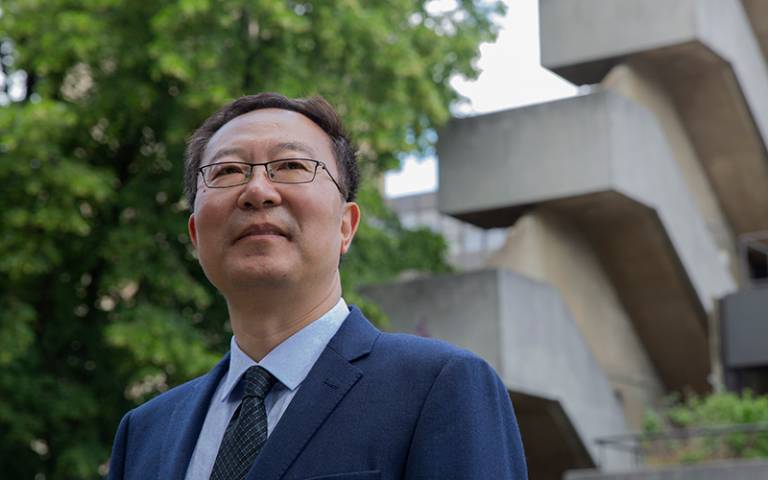IOE Director on valuing a greater diversity of modern foreign language options
21 October 2021
Responding to the Schools Minister’s call, as reported in The i, for language teaching in schools to reflect “modern Britain”, the IOE’s Director, and Professor in Applied Linguistics, Li Wei commented:

It is very positive to see community languages that already exist in Britain, which also happen to be major global languages like Arabic, being championed in this way.
The overall level of language learning in England, at least as measured by GCSE entries, has sadly continued to decline. There are, though, welcome and encouraging signs in relation to ‘Other Modern Languages’ (languages other than French, German, Irish, Spanish and Welsh). The British Council's language trends surveys, for example, show these other languages typically accounting for around 10% of total language entries, with many seeing growth, led by Chinese, but also Arabic, Italian, Modern Hebrew, Polish and Portuguese. The pandemic caused a dip in exam entries, but we can act to ensure that is a temporary blip.
The longer-term uptick for other languages is reflected across a number of schools where a large number of community languages are on offer at GCSE, sometimes as many as 18. We should recognise and celebrate these examples.
The government’s investment in language learning through initiatives like the Mandarin Excellence Programme is helping to build vital capacity within the schools system for language education. Ideally, we would see such investment across many more languages, including community languages. We also need to avoid reforms that may harm take up of languages, as the All-Party Group for Modern Languages warned regarding proposed revised subject content for French, German and Spanish GCSEs and its narrow emphasis on vocabulary.
At the IOE we have been proud to deliver the Mandarin Excellence Programme (MEP), in partnership with the British Council, since 2016, and we were delighted that this summer the DfE renewed the MEP’s funding for a further three years. So far, the MEP has reached some 6,500 pupils, while also providing a model and exemplar for the DfE’s new Latin Excellence Programme. As well as the MEP, the IOE offers a number of initial and continuing teacher education programmes in language teaching.
Across all of our work in language education, we emphasise the importance of drawing out the role of ‘culture’ in language learning. Vocabulary and grammar are obviously central components in acquiring a new language, but as highlighted by organisations such as the Association for Language Learning, language teaching can be more effective where it puts these elements in context. A key part of the MEP is a two-week residential intensive-learning course in China for Year 9 pupils, with a strong focus on culture as well as language, while our student language teachers learn about enhancing their subject pedagogy through the incorporation of literature and film into lessons.
Links
- Read The i's article: 'Teach children Polish and Arabic to reflect ‘modern Britain’, schools minister says'
- IOE Confucius Institute for Schools
- Languages PGCE
- Applied Linguistics MA
 Close
Close

